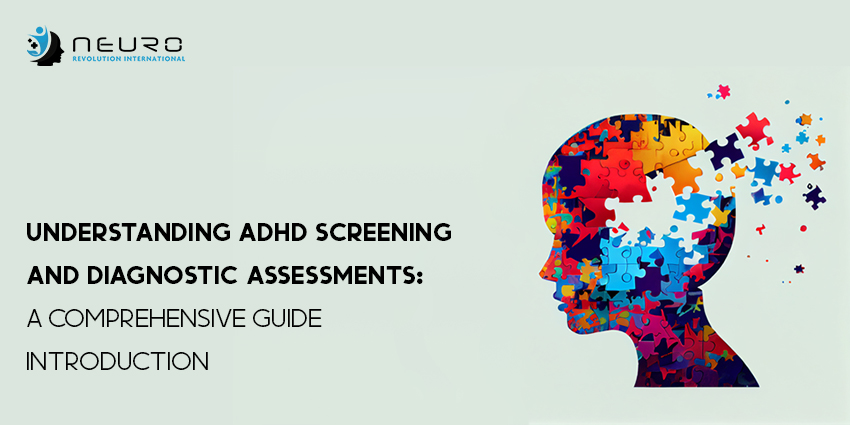Ultimate Guide to ADHD Screening & Diagnostic Assessments: Mastering the Process
Millions of youngsters throughout the world suffer from Attention-Deficit/Hyperactivity disease (ADHD), a common neurodevelopmental disease. In order to provide the proper support and interventions to assist children with ADHD achieve in a variety of areas of their lives, early detection and diagnosis are essential. The screening exam and the diagnostic evaluation are the two primary parts of the ADHD assessment, which will be discussed in this blog post. We’ll go over their function, the procedure, and how crucial it is to seek the advice of a licensed healthcare provider for a precise diagnosis.
Screening Test: The First Step in Identifying ADHD Symptoms
The screening test is the first stage in the evaluation of ADHD. Its main objective is to pinpoint people who could have indications of ADHD and need additional testing. Parents, teachers, and occasionally the subject themselves complete questionnaires or rating scales as part of screening examinations.
These surveys collect data on the child’s behavior in a variety of areas, including attention span, impulsivity, hyperactivity, and general functioning. They might also compile data on the child’s academic progress, developmental milestones, and medical history. The screening exam identifies probable symptoms that could be ADHD-related and determine whether further testing is required.
It’s vital to remember that the screening exam by itself cannot identify ADHD. Only the possibility of ADHD is indicated, depending on the symptoms and behaviors that have been documented.
Diagnostic Evaluation: Confirming the ADHD Diagnosis
In order to confirm the diagnosis of ADHD, a diagnostic evaluation is performed if the screening test indicates a high chance of the condition. A certified healthcare professional with expertise in ADHD, such as a pediatrician, psychiatrist, or psychologist, often conducts this evaluation.
The diagnostic evaluation entails a thorough analysis that takes into account a variety of sources of data, such as clinical interviews, observations, the patient’s medical history, and different rating scales. To rule out further potential reasons for the reported symptoms and to evaluate whether the criteria for ADHD are met, the healthcare expert will do a thorough evaluation.
The medical expert performing the diagnostic examination may collect data on the child’s behavior and symptoms from a variety of locations, including home and school. They might also consider the length and intensity of the symptoms, how they affect everyday living, and any potential co-existing diseases.
If the patient meets the requirements specified in the diagnostic guidelines, such as those offered by the Diagnostic and Statistical Manual of Mental Disorders (DSM-5) or the International Classification of Diseases (ICD-11), the healthcare professional will diagnose ADHD based on the diagnostic evaluation.
The Importance of Consulting with a Qualified Healthcare Professional
ADHD diagnosis necessitates serious thought and skill. As a result, for an appropriate diagnosis, it is critical to speak with a skilled healthcare practitioner. Early detection and intervention can dramatically enhance the quality of life for children with ADHD, allowing them to excel academically, socially, and emotionally.
Conclusion
ADHD screening and diagnostic assessments are essential tools in identifying and diagnosing this common neurodevelopmental disorder. By understanding the process and the importance of consulting with a qualified healthcare professional, parents and caregivers can ensure that children with ADHD receive the support and interventions they need to thrive.


